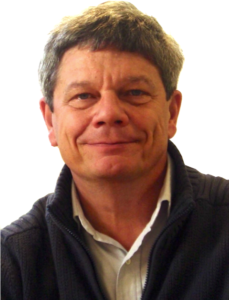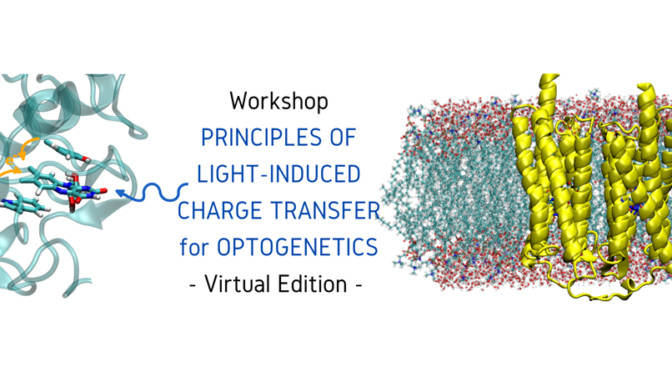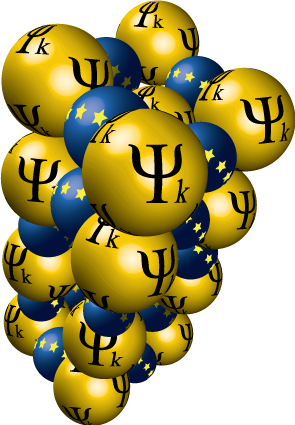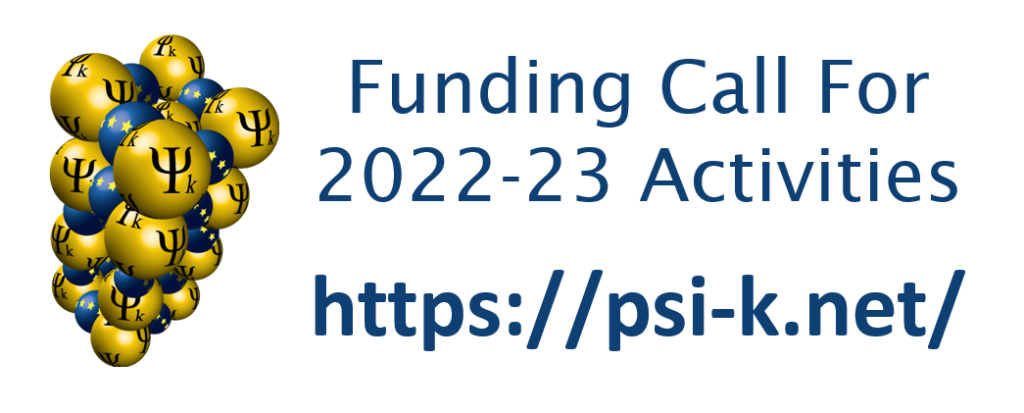Dear Friends and Colleagues,
CECAM and Psi-k are publishing their joint annual call to organise a high-profile common research conference on an outstanding subject in the broad area of computational molecular and materials science; topics can range from applications in solid-state materials, soft matter, or biomolecules, to theoretical, methodological, and algorithmic advances. Information about previous research conferences can be found on the CECAM and Psi-k web sites.
This joint initiative intends to promote interdisciplinary exchange across the areas indicated above and focus on exceptional scientific challenges. Fostering discussion of new developments and synergies between areas is a key objective of this conference. We strongly encourage proposals with organizing teams and participants from different specific scientific domains and complementary expertise.
The conference should typically last between 3.5 and 5 days, and target a maximum of 100 participants, with a structure and format dedicated to foster plentiful discussions and informal interactions among the participants, proactively engaged by conference organizers and discussion leaders.
Proposals must be submitted HERE. All conference proposals will be peer reviewed, discussed, and ranked by a scientific panel composed of three members proposed by CECAM and three trustees of Psi-k.
In the proposal, emphasis should be placed on outlining the challenging scientific issues that will be the focus of the event, and in establishing the proposed list of speakers and participants. Active participation of scientists at different stages of their career, and especially early stages, is strongly encouraged, as is diversity (e.g. gender, scientific domain, geographical spread) in the speakers and organisers.
The proposal should include information on the venue (anywhere in the EU, UK, and associated countries – Iceland, Norway, Albania, Bosnia and Herzegovina, North Macedonia, Montenegro, Serbia, Turkey, Israel, Moldova, Switzerland, Faroe Islands, Ukraine, Tunisia, Georgia, Armenia), and a tentative budget. Organizers can be based at institutions worldwide. CECAM and Psi-k are committed to support the event with up to 30,000 euro. Conference fees may be charged only to cover costs.
The call will be open until September 5th 2021 and the final outcome will be communicated at the end of November 2021. Proposals that are not selected will be considered also for regular CECAM and Psi-k activities, if the organisers activate this option in the submission. The conference must take place between Apr 2022 and Mar 2023, avoiding for this year overlap with Psi-k 2022, that will be held August 22-25 2022.
For further information, please do not hesitate to contact us.
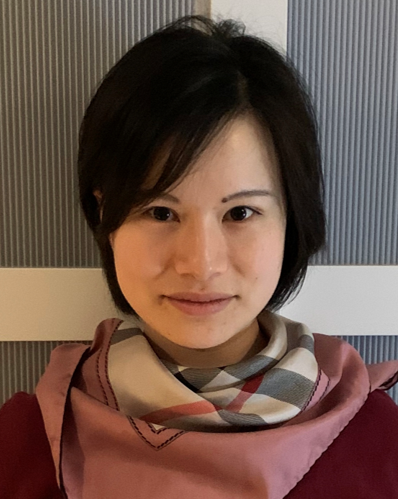 Congratulations to Bingqing Cheng, winner of the 5th Volker Heine Young Investigator Award. Her outstanding talk made her pioneering work in the field of machine learning interatomic potentials and applications to phase diagrams accessible to a broad audience, and it reflected the breadth and impact of her contributions.
Congratulations to Bingqing Cheng, winner of the 5th Volker Heine Young Investigator Award. Her outstanding talk made her pioneering work in the field of machine learning interatomic potentials and applications to phase diagrams accessible to a broad audience, and it reflected the breadth and impact of her contributions.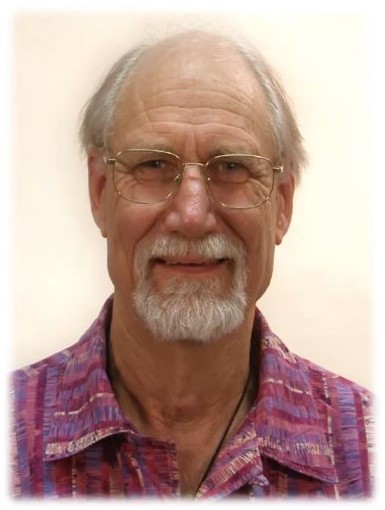 Congratulations to all of the finalists and congratulations to all the other applicants with their research! Let us celebrate all who take part in Psi-k to keep it going, and who help fund the Award, and contribute to all the Psi-k activities without any official funding beyond STFC’s administration.
Congratulations to all of the finalists and congratulations to all the other applicants with their research! Let us celebrate all who take part in Psi-k to keep it going, and who help fund the Award, and contribute to all the Psi-k activities without any official funding beyond STFC’s administration.

